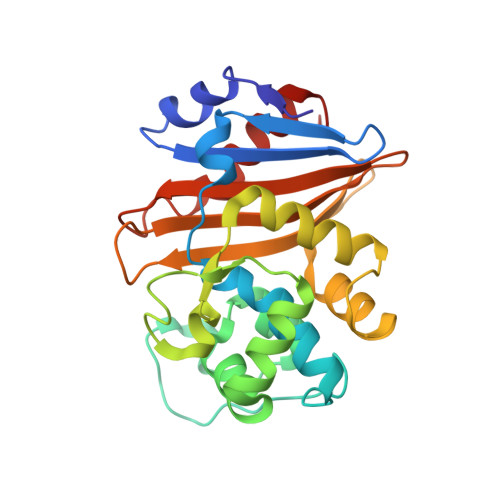Epistasis arises from shifting the rate-limiting step during enzyme evolution of a beta-lactamase.
Frohlich, C., Bunzel, H.A., Buda, K., Mulholland, A.J., van der Kamp, M.W., Johnsen, P.J., Leiros, H.S., Tokuriki, N.(2024) Nat Catal 7: 499-509
- PubMed: 38828429
- DOI: https://doi.org/10.1038/s41929-024-01117-4
- Primary Citation of Related Structures:
8PEA, 8PEB, 8PEC - PubMed Abstract:
Epistasis, the non-additive effect of mutations, can provide combinatorial improvements to enzyme activity that substantially exceed the gains from individual mutations. Yet the molecular mechanisms of epistasis remain elusive, undermining our ability to predict pathogen evolution and engineer biocatalysts. Here we reveal how directed evolution of a β-lactamase yielded highly epistatic activity enhancements. Evolution selected four mutations that increase antibiotic resistance 40-fold, despite their marginal individual effects (≤2-fold). Synergistic improvements coincided with the introduction of super-stochiometric burst kinetics, indicating that epistasis is rooted in the enzyme's conformational dynamics. Our analysis reveals that epistasis stemmed from distinct effects of each mutation on the catalytic cycle. The initial mutation increased protein flexibility and accelerated substrate binding, which is rate-limiting in the wild-type enzyme. Subsequent mutations predominantly boosted the chemical steps by fine-tuning substrate interactions. Our work identifies an overlooked cause for epistasis: changing the rate-limiting step can result in substantial synergy that boosts enzyme activity.
Organizational Affiliation:
Department of Pharmacy, UiT The Arctic University of Norway, Tromsø, Norway.


















